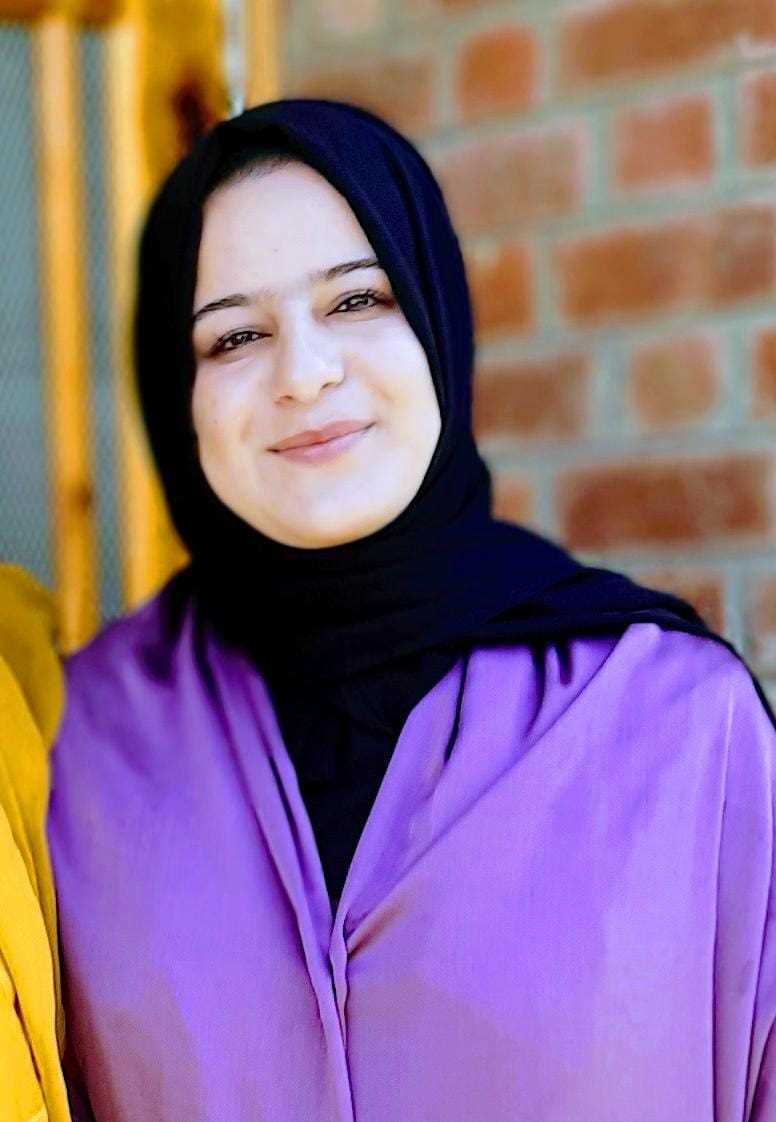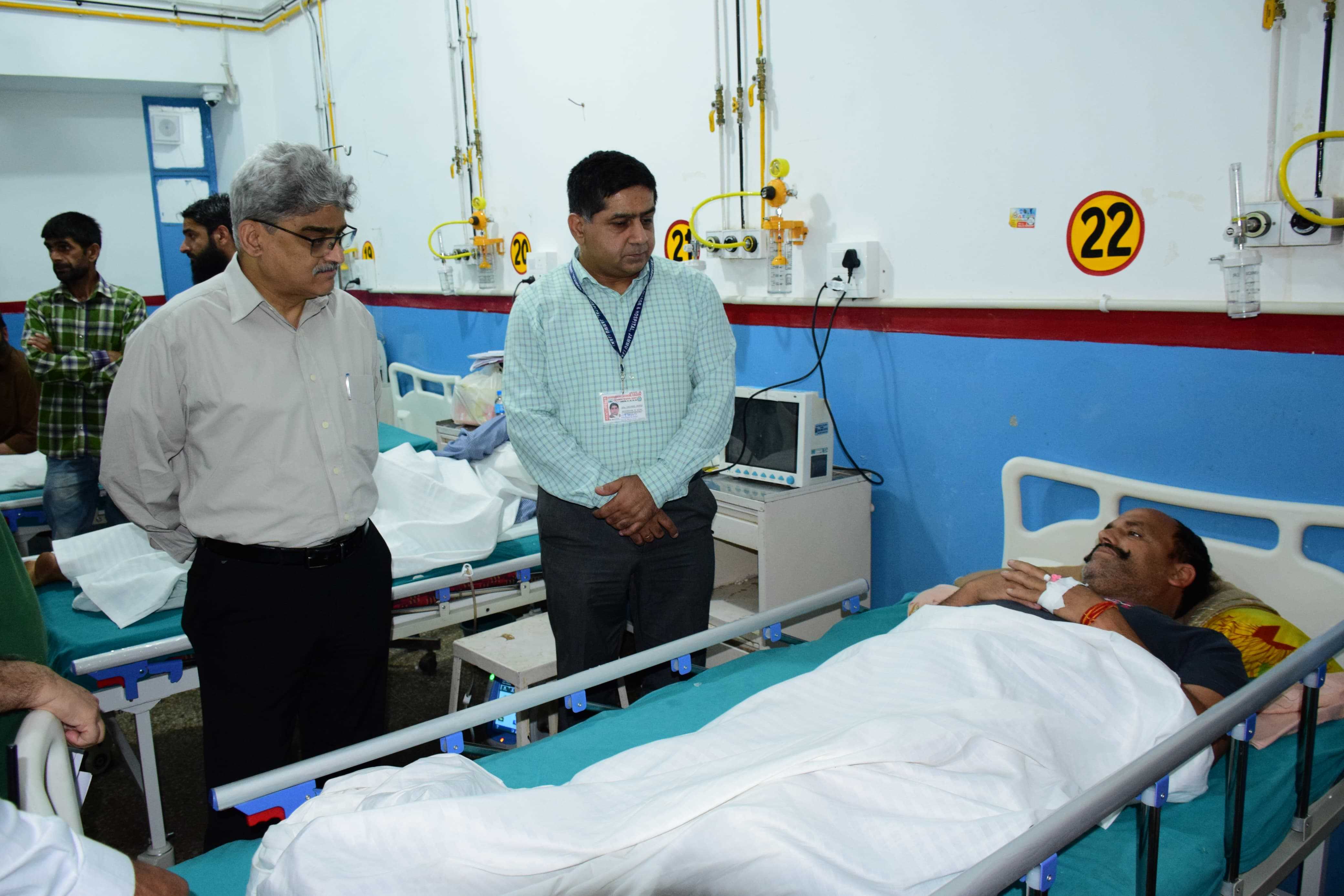
Kashmir, has been grappling with an alarming rise in stroke cases. According to various studies, Kashmir has one of the highest incidence rates of stroke in the country. But what's behind this disturbing trend?
I especially address this article to young minds and youth so that they can build up the awareness among people
The news came out of the blue when I reached home after classes and I heard one of our neighbours passed away. As death keeps no calendar.
It's not a new thing or puzzling thing to hear every year in winters even in summers many youth and elderly die due to cardiac arrest or due to stroke.
Kashmir, has been grappling with an alarming rise in stroke cases. According to various studies, Kashmir has one of the highest incidence rates of stroke in the country. But what's behind this disturbing trend?
I had a thorough study through many articles and journals what is the cause behind this and the study revealed:
Genetic Predisposition
Research suggests that Kashmiris have a higher genetic predisposition to stroke due to a strong family history of cardiovascular diseases. A study published in the Journal of Neurosciences in Rural Practice found that 71.4% of stroke patients in Kashmir had a family history of cardiovascular diseases
Lifestyle Factors
Traditional Kashmiri cuisine is high in salt, sugar, and saturated fats, which can increase blood pressure, cholesterol levels, and the risk of stroke. A study published in the Indian Journal of Community Medicine found that 73.2% of stroke patients in Kashmir were consuming high amounts of salt and sugar
Environmental Factors
Kashmir's high altitude can lead to lower oxygen levels, which may increase the risk of stroke. A study published in the Journal of High Altitude Medicine and Biology found that high-altitude residents were more likely to experience stroke due to hypoxia .
Healthcare-Related Factors
Rural areas in Kashmir often have limited access to healthcare facilities, making it challenging for people to receive timely medical attention for stroke. A study published in the Journal of Neurosciences in Rural Practice found that 61.9% of stroke patients in Kashmir reported delayed hospital arrival.
Genetic Predisposition
Family History
Studies suggest that Kashmiris have a higher genetic predisposition to stroke due to a strong family history of cardiovascular diseases.
Genetic Mutations
Research has identified specific genetic mutations, such as the factor V Leiden mutation, which are more prevalent in Kashmiri populations and increase the risk of stroke.
Socioeconomic Factors
Poverty is prevalent in Kashmir, and people may not have access to healthy food, clean water, or healthcare facilities, increasing their risk of stroke. A study published in the Indian Journal of Community Medicine found that 56.5% of stroke patients in Kashmir belonged to low socioeconomic status .
Lack of awareness is one more factor
Preventive measures that Kashmiris can take to reduce their risk of stroke:
Lifestyle Modifications
Maintain a Healthy Diet
Eat a balanced diet low in salt, sugar, and saturated fats. Include traditional Kashmiri dishes like haakh saag, nadur, and trout.
Stay physically active
Engage in regular physical activity, such as brisk walking, jogging, or yoga, for at least 30 minutes a day.
Quit smoking
Smoking is a significant risk factor for stroke. Quit smoking and avoid exposure to second hand smoke.
Limit alcohol Consumption
Excessive alcohol consumption can increase blood pressure and stroke risk.
Health Check-Ups
Regular blood Pressure Checks
Monitor your blood pressure regularly, especially if you have a family history of hypertension.
Blood Sugar Checks
Get your blood sugar levels checked regularly, especially if you have a family history of diabetes.
Lipid Profile Checks
Get your lipid profile checked regularly to monitor your cholesterol levels.
Regular Health Check-Ups
Schedule regular health check-ups with your doctor to monitor your overall health.
Stress Management
Practice Stress-Reducing Techniques
Engage in stress-reducing activities like meditation, yoga, or deep breathing exercises.
Traditional Remedies
Kashmiri tea (Kahwa)
Drink Kahwa regularly, as it contains ingredients like cinnamon, cardamom, and ginger that can help reduce stress and improve cardiovascular health.
Herbal remedies
Consider using traditional Kashmiri herbal remedies like Shilajit, Mulethi, Banafsha Ashwagandha, and Triphala to promote overall health and well-being.
Community-Based Initiatives
Join a Community Fitness Program
Participate in community-based fitness programs, such as yoga or walking groups.
Support Local Health Initiatives
Support local health initiatives and organizations that promote healthy living and stroke prevention.
Raise Awareness
Educate your family and friends about the risks of stroke and the importance of prevention
The high incidence of stroke in Kashmir is a complex issue, influenced by a combination of genetic, lifestyle, environmental, healthcare-related, and socioeconomic factors. Addressing these factors through public health initiatives, education, and awareness campaigns can help reduce the burden of stroke in Kashmir.
Email:-------------------------muskanshafimalik@gmail.com

Kashmir, has been grappling with an alarming rise in stroke cases. According to various studies, Kashmir has one of the highest incidence rates of stroke in the country. But what's behind this disturbing trend?
I especially address this article to young minds and youth so that they can build up the awareness among people
The news came out of the blue when I reached home after classes and I heard one of our neighbours passed away. As death keeps no calendar.
It's not a new thing or puzzling thing to hear every year in winters even in summers many youth and elderly die due to cardiac arrest or due to stroke.
Kashmir, has been grappling with an alarming rise in stroke cases. According to various studies, Kashmir has one of the highest incidence rates of stroke in the country. But what's behind this disturbing trend?
I had a thorough study through many articles and journals what is the cause behind this and the study revealed:
Genetic Predisposition
Research suggests that Kashmiris have a higher genetic predisposition to stroke due to a strong family history of cardiovascular diseases. A study published in the Journal of Neurosciences in Rural Practice found that 71.4% of stroke patients in Kashmir had a family history of cardiovascular diseases
Lifestyle Factors
Traditional Kashmiri cuisine is high in salt, sugar, and saturated fats, which can increase blood pressure, cholesterol levels, and the risk of stroke. A study published in the Indian Journal of Community Medicine found that 73.2% of stroke patients in Kashmir were consuming high amounts of salt and sugar
Environmental Factors
Kashmir's high altitude can lead to lower oxygen levels, which may increase the risk of stroke. A study published in the Journal of High Altitude Medicine and Biology found that high-altitude residents were more likely to experience stroke due to hypoxia .
Healthcare-Related Factors
Rural areas in Kashmir often have limited access to healthcare facilities, making it challenging for people to receive timely medical attention for stroke. A study published in the Journal of Neurosciences in Rural Practice found that 61.9% of stroke patients in Kashmir reported delayed hospital arrival.
Genetic Predisposition
Family History
Studies suggest that Kashmiris have a higher genetic predisposition to stroke due to a strong family history of cardiovascular diseases.
Genetic Mutations
Research has identified specific genetic mutations, such as the factor V Leiden mutation, which are more prevalent in Kashmiri populations and increase the risk of stroke.
Socioeconomic Factors
Poverty is prevalent in Kashmir, and people may not have access to healthy food, clean water, or healthcare facilities, increasing their risk of stroke. A study published in the Indian Journal of Community Medicine found that 56.5% of stroke patients in Kashmir belonged to low socioeconomic status .
Lack of awareness is one more factor
Preventive measures that Kashmiris can take to reduce their risk of stroke:
Lifestyle Modifications
Maintain a Healthy Diet
Eat a balanced diet low in salt, sugar, and saturated fats. Include traditional Kashmiri dishes like haakh saag, nadur, and trout.
Stay physically active
Engage in regular physical activity, such as brisk walking, jogging, or yoga, for at least 30 minutes a day.
Quit smoking
Smoking is a significant risk factor for stroke. Quit smoking and avoid exposure to second hand smoke.
Limit alcohol Consumption
Excessive alcohol consumption can increase blood pressure and stroke risk.
Health Check-Ups
Regular blood Pressure Checks
Monitor your blood pressure regularly, especially if you have a family history of hypertension.
Blood Sugar Checks
Get your blood sugar levels checked regularly, especially if you have a family history of diabetes.
Lipid Profile Checks
Get your lipid profile checked regularly to monitor your cholesterol levels.
Regular Health Check-Ups
Schedule regular health check-ups with your doctor to monitor your overall health.
Stress Management
Practice Stress-Reducing Techniques
Engage in stress-reducing activities like meditation, yoga, or deep breathing exercises.
Traditional Remedies
Kashmiri tea (Kahwa)
Drink Kahwa regularly, as it contains ingredients like cinnamon, cardamom, and ginger that can help reduce stress and improve cardiovascular health.
Herbal remedies
Consider using traditional Kashmiri herbal remedies like Shilajit, Mulethi, Banafsha Ashwagandha, and Triphala to promote overall health and well-being.
Community-Based Initiatives
Join a Community Fitness Program
Participate in community-based fitness programs, such as yoga or walking groups.
Support Local Health Initiatives
Support local health initiatives and organizations that promote healthy living and stroke prevention.
Raise Awareness
Educate your family and friends about the risks of stroke and the importance of prevention
The high incidence of stroke in Kashmir is a complex issue, influenced by a combination of genetic, lifestyle, environmental, healthcare-related, and socioeconomic factors. Addressing these factors through public health initiatives, education, and awareness campaigns can help reduce the burden of stroke in Kashmir.
Email:-------------------------muskanshafimalik@gmail.com
© Copyright 2023 brighterkashmir.com All Rights Reserved. Quantum Technologies